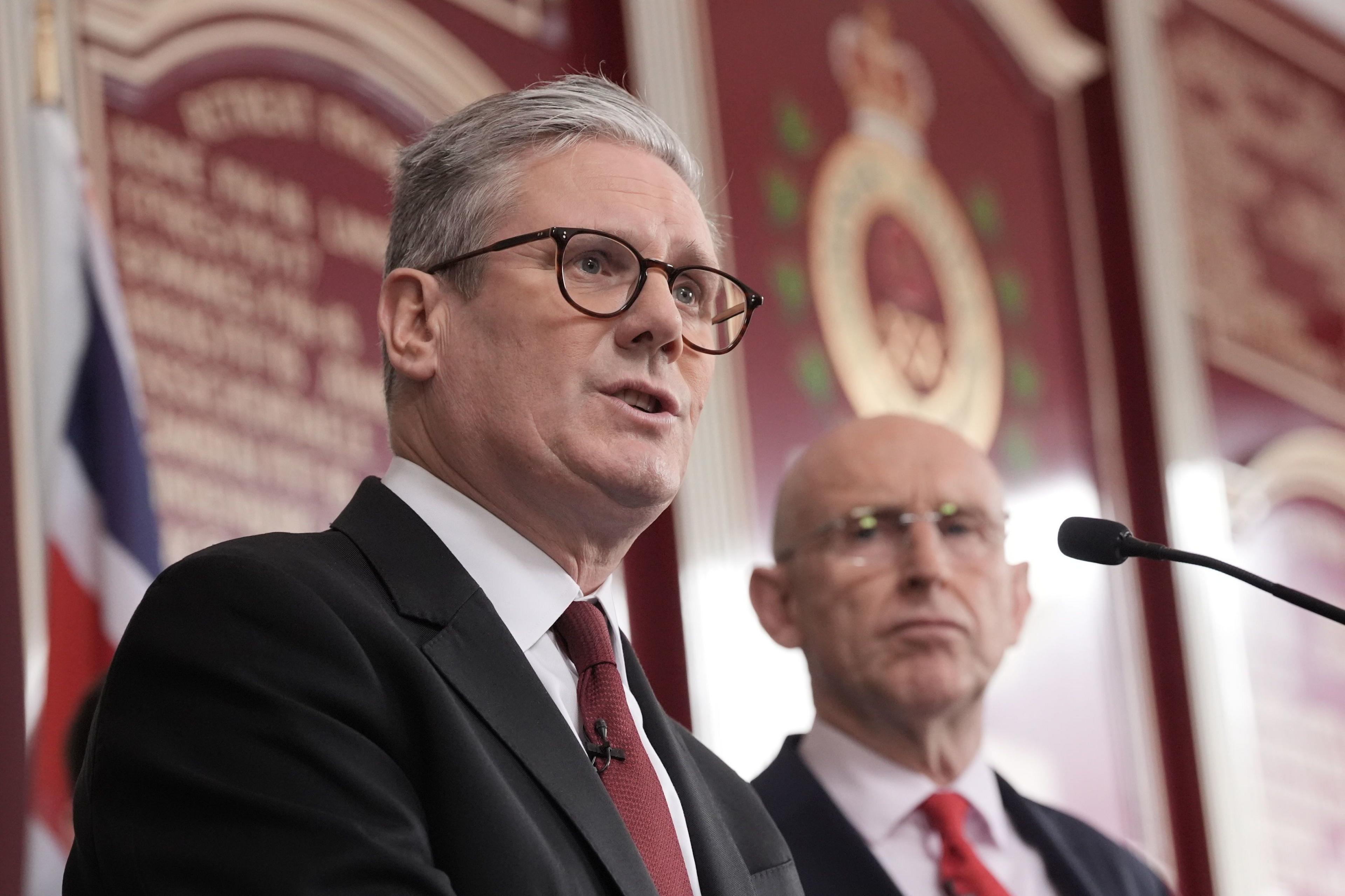Reeves vows Labour will bring 'good jobs' to Scotland
Rachel Reeves vows Labour will bring "good jobs" to Scotland
- Published
A Labour government will bring "good jobs" to Scotland, reduce energy bills and improve energy security, the party's Treasury spokesperson has vowed.
During a visit to Edinburgh, Rachel Reeves said her party's industrial strategy, a national wealth fund and a Scotland-headquartered energy body would help make the UK a "global leader" in "industries of the future".
It came after she told an audience of financial services leaders Labour would "unleash Scotland's economic firepower".
The SNP have said Labour would continue with austerity policies if they win the general election, while the Scottish Conservatives said the UK government had already helped household finances with tax cuts.

Joining Scottish Labour leader Anas Sarwar in the capital, Ms Reeves said her party would "turn the page" on "chaos" under the Conservative UK government and SNP Scottish government.
However, she said the "ship has sailed" on the UK's EU membership.
Ms Reeves told a question and answer session that a Labour government would build on Edinburgh and Scotland's "huge potential" in the financial services sector, which support 145,000 jobs in Scotland, according to industry body City UK, external.
The Labour Treasury spokesperson ruled out hikes in income tax, National Insurance and VAT to give "certainty" to taxpayers.
She also told BBC Scotland News a new national wealth fund would help generate private investment in green technology.
And Ms Reeves said the party would invest alongside business in "huge opportunities" such as floating offshore wind, carbon capture and storage and green hydrogen".
GB Energy, a publicly owned body headquartered in Scotland, would help create jobs north of the border, Ms Reeves added.
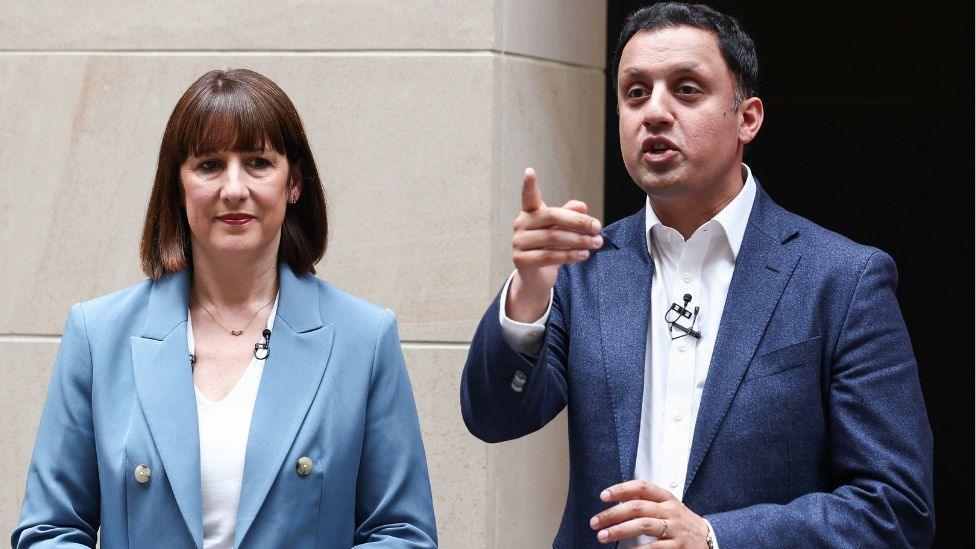
Rachel Reeves joined Scottish Labour leader Anas Sarwar on the campaign trail
While Labour has pledged to cut migration, she insisted businesses would not be left without migrant workers they rely on.
"We want to reform our education system and our skills system, working with the Scottish government of course where those areas are devolved, to ensure that talent is being nurtured here in Britain rather than having to import workers with the skills that our businesses need," the shadow chancellor said.
Asked if her party was "running scared" of Nigel Farage's Reform Party, she said: “Absolutely not."
Ms Reeves told BBC Scotland News she had voted against Brexit and would do so again but added: "That deal is done. That ship has sailed."
She said her party wanted to "build on the deal Boris Johnson secured" by relaxing red tape on food exports for farmers and food producers, increasing touring rights for artists and agreeing mutual recognition of professional qualifications.
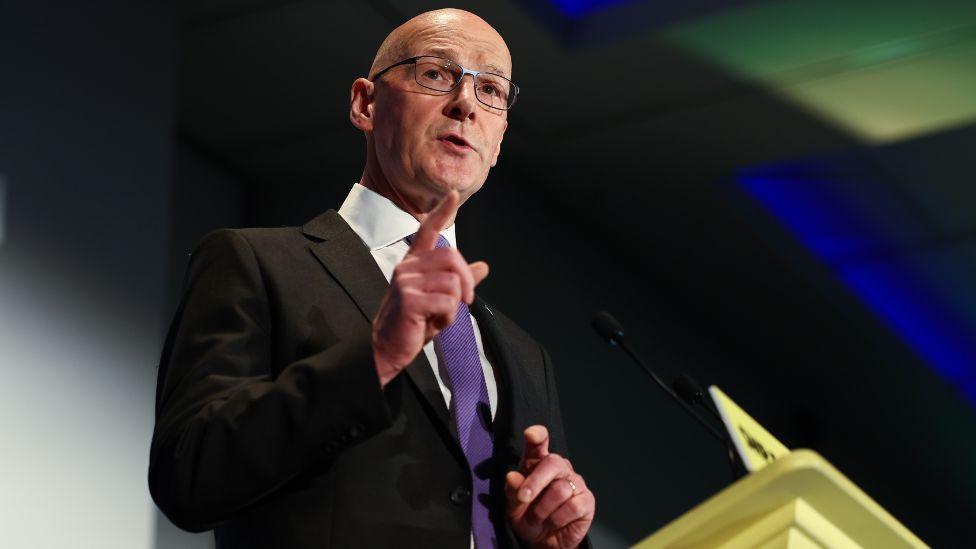
First Minister John Swinney has urged Labour to take action on child poverty
Earlier, First Minister John Swinney called for talks with Labour leader Sir Keir Starmer to discuss "shared goals" on child poverty.
He said: “The Tories are finished, so Labour has an opportunity to deliver a Westminster reset on tackling child poverty.
"They now need to commit to it."
Mr Swinney, who was visiting a nursery in Edinburgh, added: "What we’ve got to focus on is that we generate the wealth in our society that we can invest in our public services and help us to eradicate child poverty.
"That’s the central mission of my government."
Meanwhile, Scottish Conservative leader Douglas Ross, campaigning at Prestwick Airport, said his party was also prioritising economic growth.
He said UK government cuts in National Insurance had "put more money into people’s pockets to be able to spend in the local economy".
"That’s in stark contrast to what we’ve seen here in Scotland, with the SNP making Scotland the highest taxed part of the country."
People who earn more than £28,850 in Scotland - slightly above median earnings - pay more income tax than they would elsewhere in the UK, with those earning less than that amount paying slightly less.
The Scottish government said its “progressive” tax regime will allow it to raise about £1.5bn more than if it still had UK income tax rates.
Scottish Liberal Democrat leader Alex Cole-Hamilton said his party would target the "intrinsic link" between health and the economy by cutting NHS waiting lists and helping people back to work.
"There is an absolute impact on economic growth from the one in seven Scots who are languishing on NHS waiting lists, the 177,000 people who have long Covid in this country who are not being helped by the Scottish government.
"They can’t work, they can’t grow the economy," he told BBC Scotland News.
- Published4 June 2024
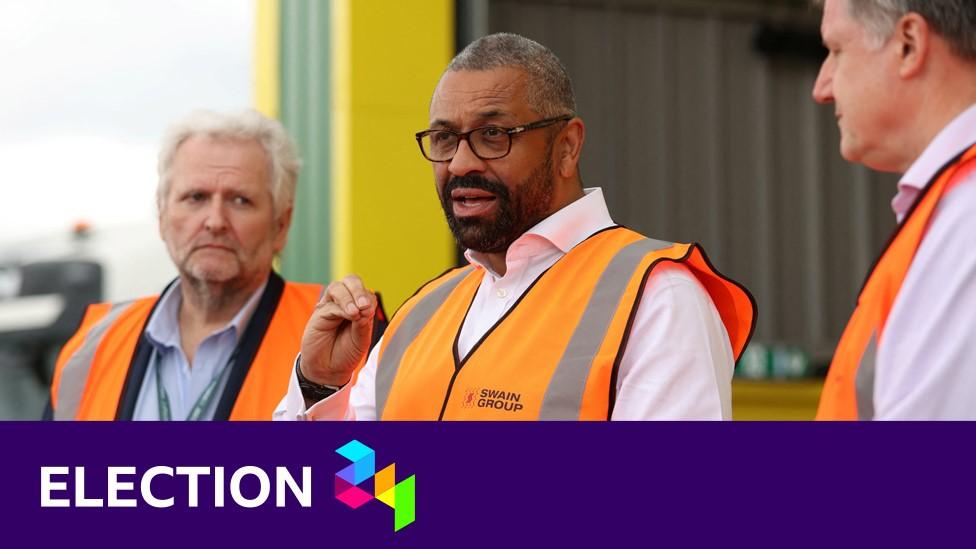
- Published3 June 2024
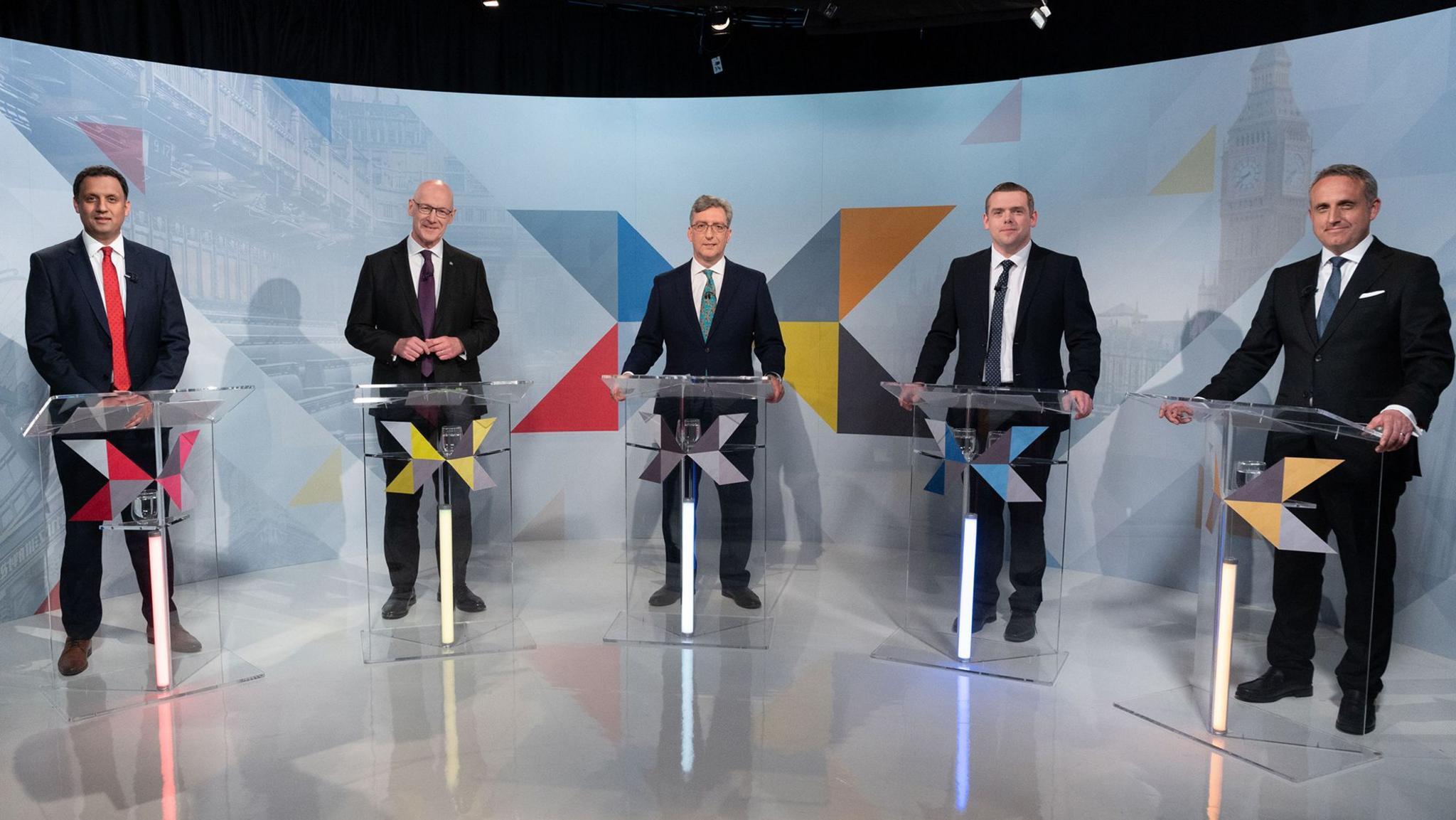
- Published3 June 2024
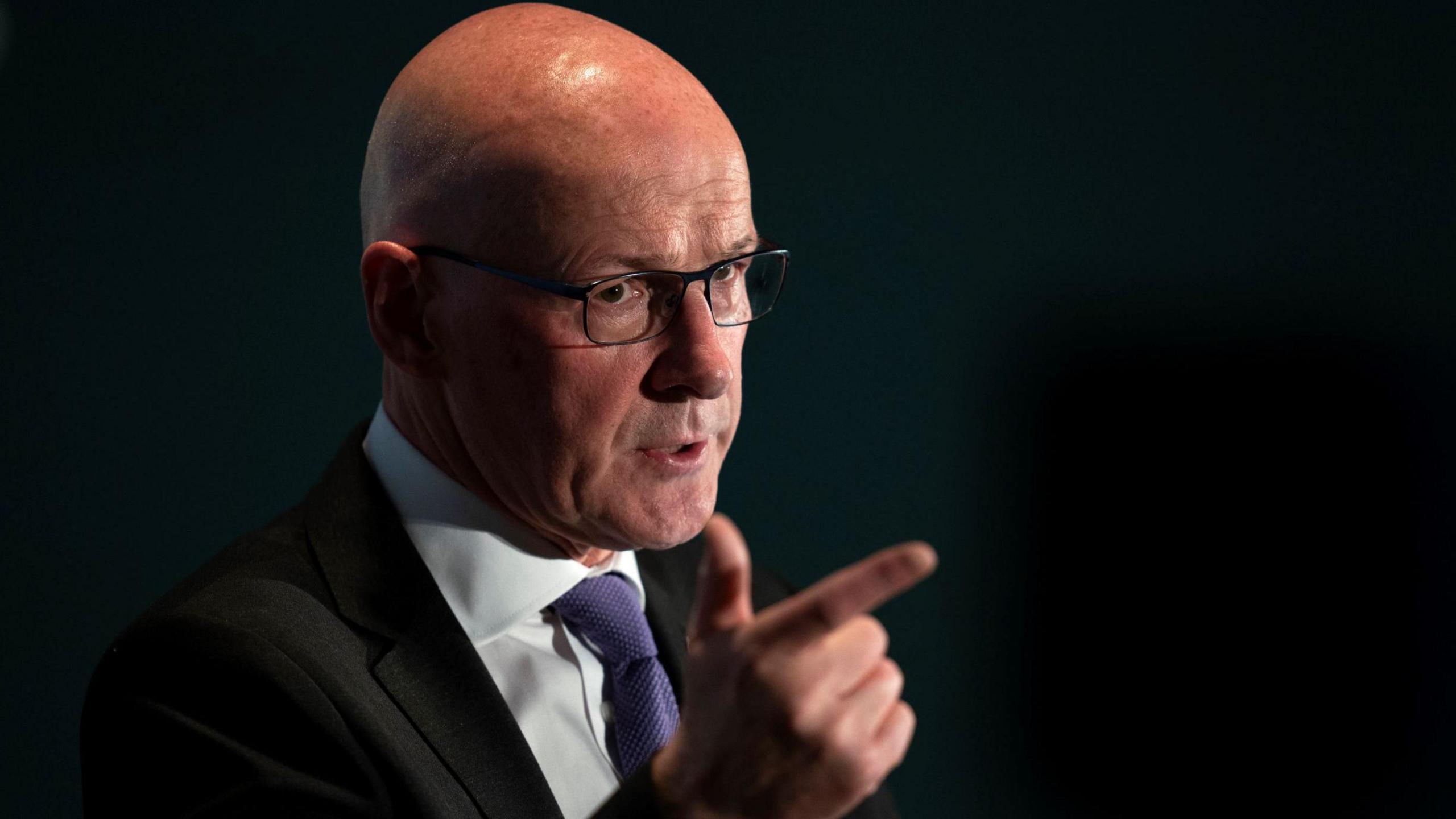
- Published3 June 2024
